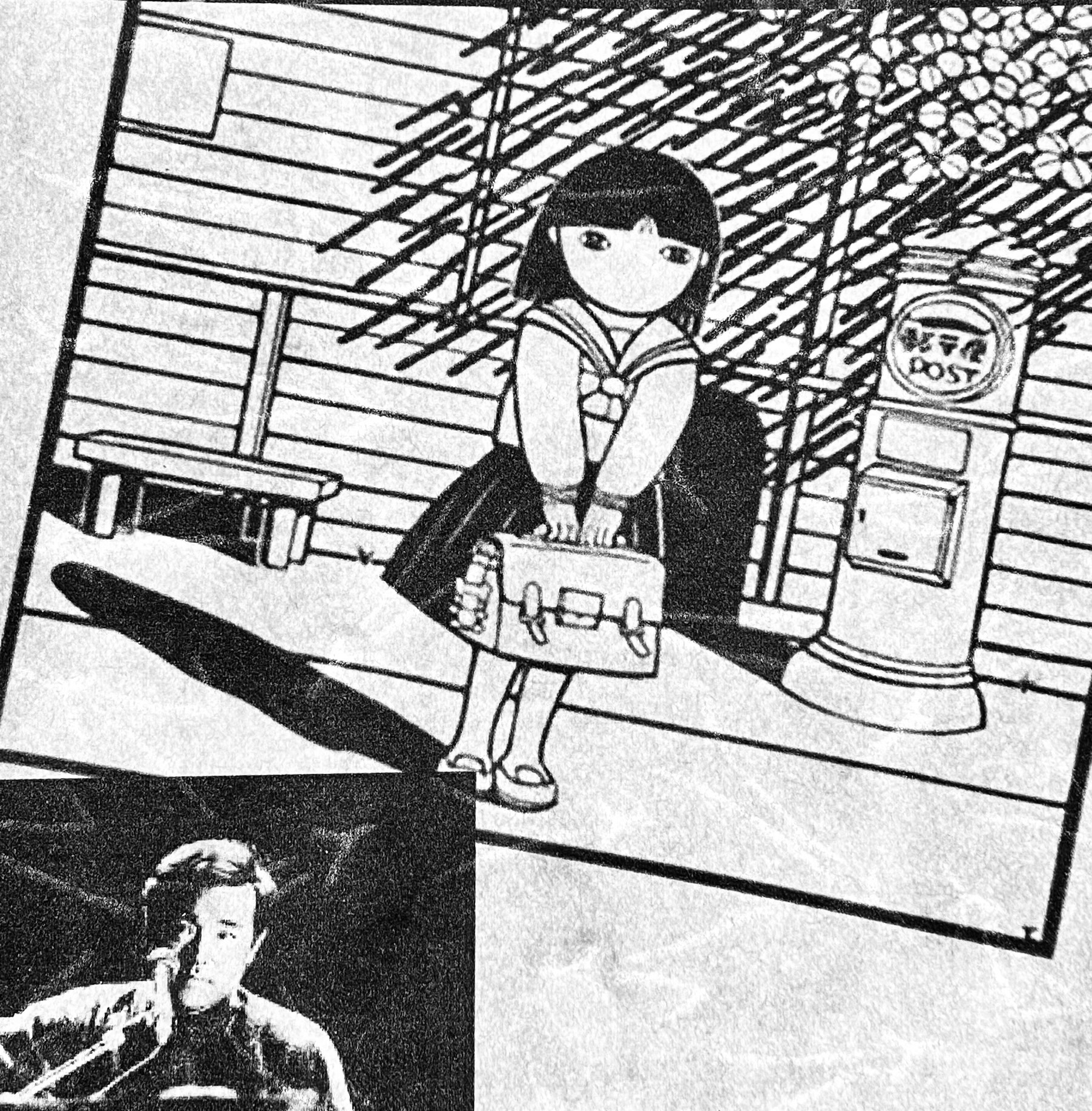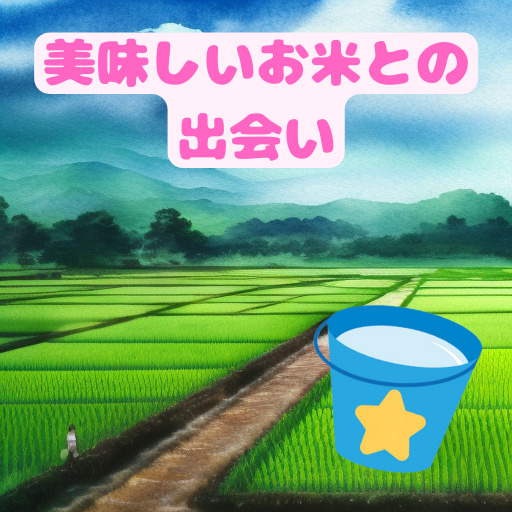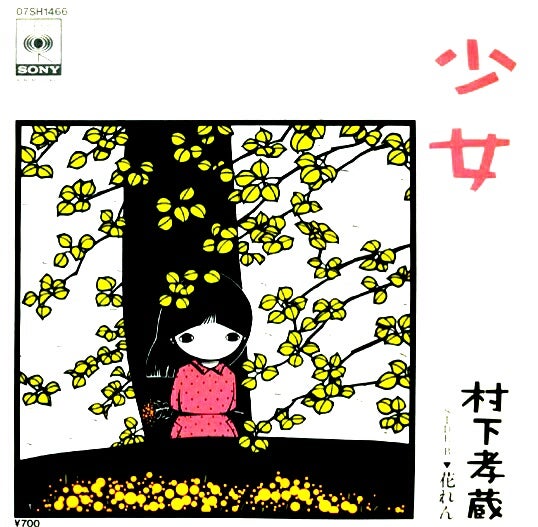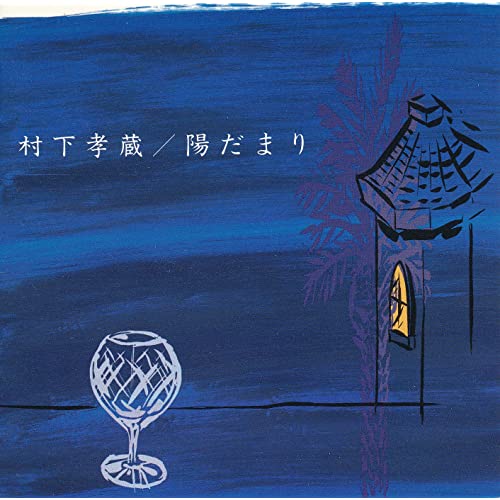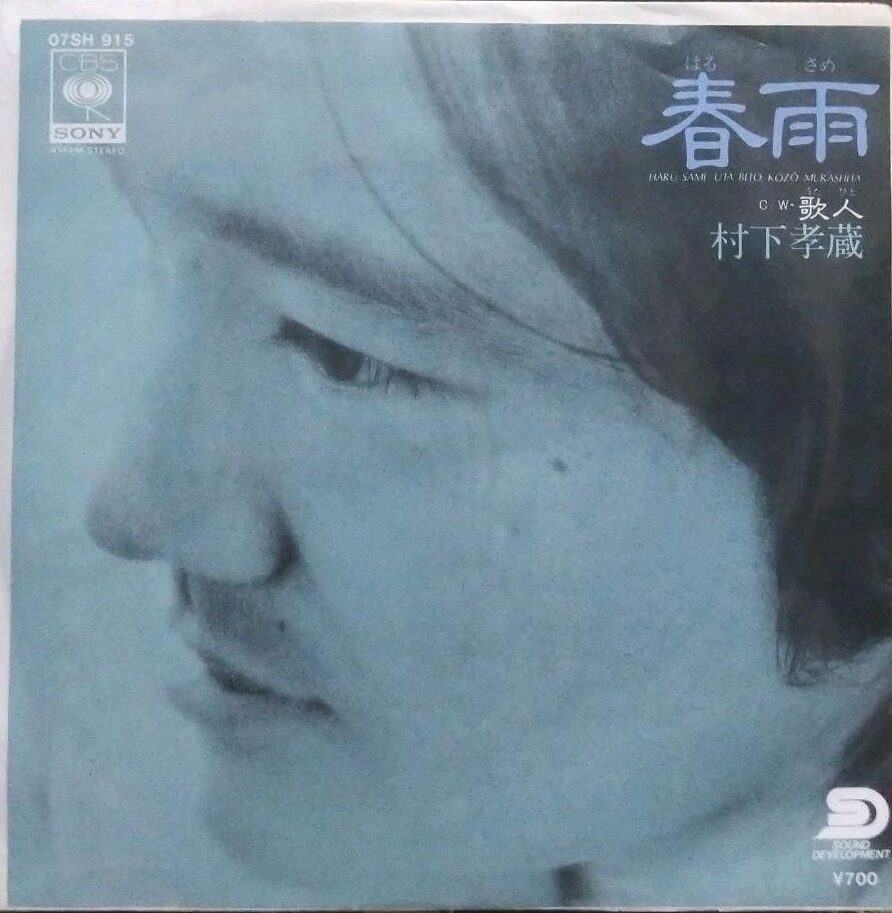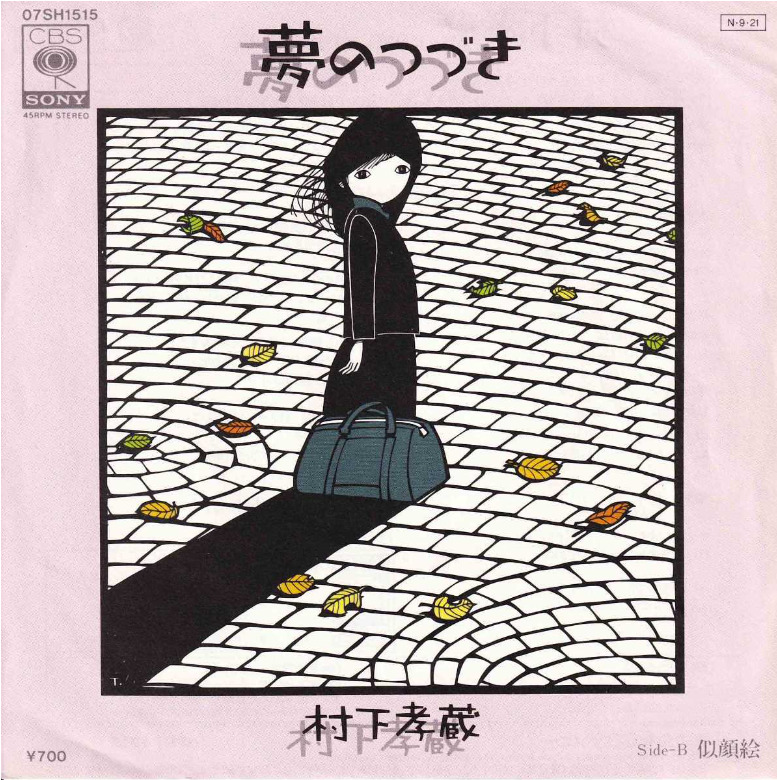13 lesser-known masterpiece songs by Kozo Murashita
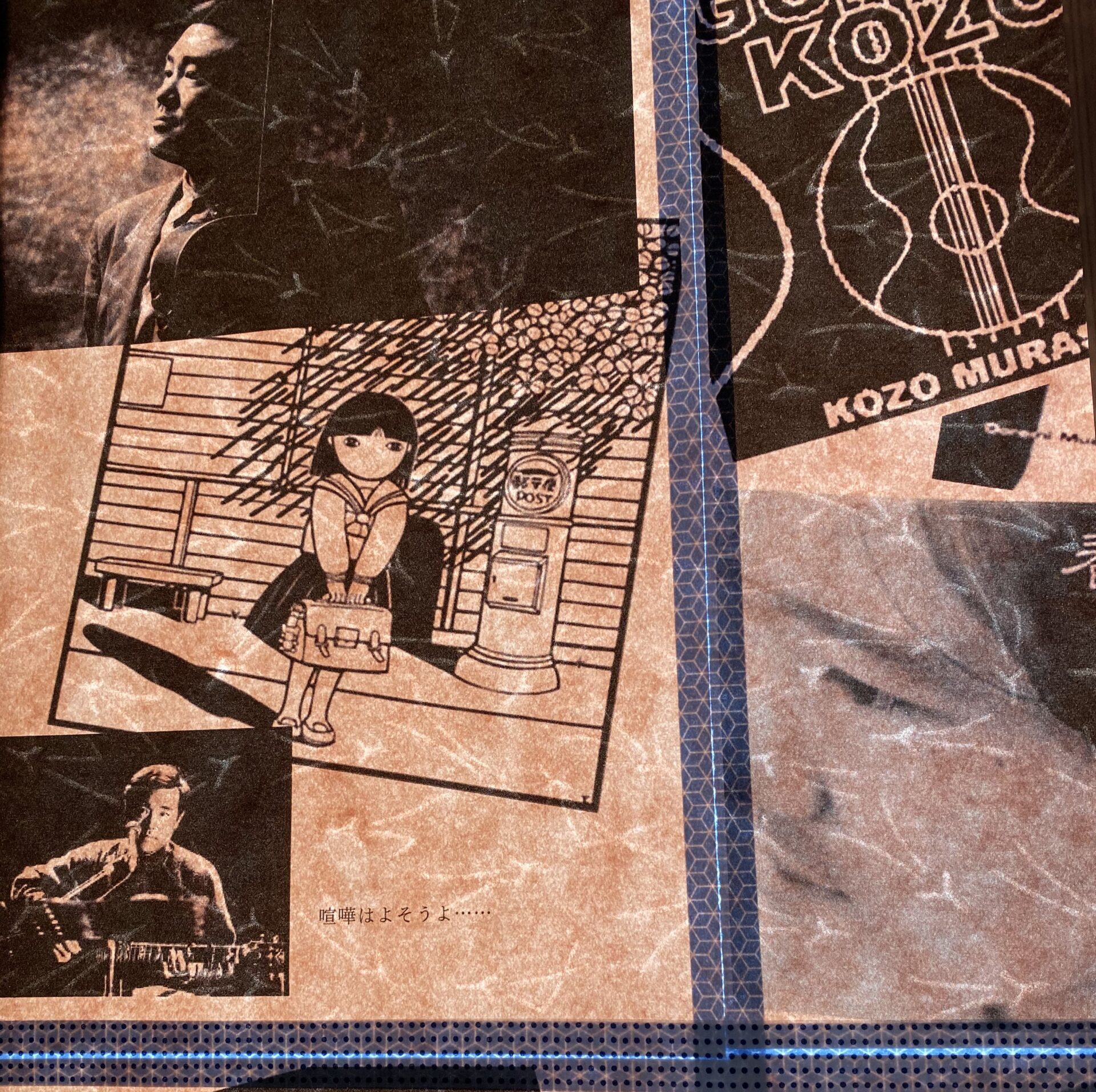

(Legendary “Gozen-reiji(midnight)” singing, playing bass and drums with one guitar !)

I beg you! Don’t say anything, just listen to it! For those who watched this and said, ‘I wasted my time’…

Punishment, isn’t it?

Wait, wait! You can’t! It’s that kind of genius performance!
Do you know Kozo Murashita? If you’ve come here, you’ve probably heard some of his representative songs such as “Hatsukoi(First Love),” “Odoriko(Dancer),” “Harusame(Spring rain),” and “Hidamari(In the Sunshine).”
With a beautiful voice and prowess on the guitar, he has the natural talent to create lyrics full of poetic emotion. Every song by Kozo Murashita has its own charm. In addition to the famous representative songs that you have heard somewhere, many hidden masterpieces are waiting for you to meet.
Would you like to taste the charm of all the songs together in this article and on this site? (This article is quite lengthy. Please jump to the part you are looking for from the table of contents. )
Click here for Kozo Murashita’s comprehensive category, which is being updated from time to time.
After the major debut, all songs officially announced as Kozo Murashita’s lyrics and music will be featured in some ranking format. For each song, the topic about the song, commentary on the lyrics, highlights, and editor’s impressions are written. This article, which collects hidden masterpieces, is recommended for the following people:
- Those who want to listen to Kozo Murashita’s songs other than “Hatsukoi” but don’t know which other songs are recommended.
- Those who listen deeply, but there may be songs they don’t know yet
It’s just a subjective commentary and ranking, but I’m sure everyone will have new discoveries. The commentary on each song is done while repeatedly listening to the song at the moment of writing. If you don’t mind, please enjoy listening to the song together.
Personality and Character
I introduced Mr. Kozo Murashita’s biography in the commentary article of the representative song “Hatsukoi(First Love)”. Wikipedia has a lot of information about Mr. Kozo Murashita, so here I would like to talk about Mr. Murashita’s personality from my own perspective.
Earnestness and seriousness
The first thing I feel is that he is a very earnest and serious person. For example, it is famous that he decided not to use English in the lyrics, but if you listen to it more closely, you will find that there is not much use of Chinese words, and the songs are written as much as possible in Japanese.
“幸せ” instead of “幸福“, “落ち葉” instead of “落葉“, etc. Of course, some of the song titles use Chinese characters, but I think this kind of thoroughness is a good representation of Mr. Murashita’s personality.
Eyes on the deep
Also, as I can see when I listen to the later songs, I feel that Mr. Murashita was looking at something far and deep. It may be said that the two songs listed at the top of the ranking below are those that have looked at such depth to the limit.
In that sense, I can’t help but think that he had been unable to share his thoughts and concerns with anyone. It’s just a wild guess, but I think that Mr. Murashita’s nature may have contributed to the premature death of this rare poet.
Shy mischievous
On the other hand, when I checked the live video, Mr. Murashita seems to be quite shy. He showed a cute smile in the scene where he played “Angela in the Night Sky” which he made for the first time.
Now, I will announce my personal top 10 songs! I’m sure there are many people with different opinions, but I would appreciate it if you could watch over me warmly.
1st place ‘Damedesuka?(Never enough)’
Take away the stars farther than tomorrow
As if hiding the sky, the rain won’t stop
Commentary
The song begins with an intro that seems to come from a far darker sky, a sky with endless depth. This song is included in the album “Aisareru-tameni(To be loved)”, and it is also known as one of the songs that fully adopted the synthesizer that was popular at the time.
Is it an image of many transparent bands coming down from the starry sky hidden in the clouds? A gray but beautiful scene in the rain.The basic line of the lyrics of this work is that of a woman speaking to a man she has feelings for.
Do you like me still forever?
Am I no good? Even if I keep waiting…
It is not possible to read whether there is a possibility that the two will meet again, but the woman will always think of the man. In time, she begins to wonder if she will not be accepted by the man on her own even if she keeps waiting. However, the woman who decided that the man was the only person she could marry in this world thinks as follows,
Begging for love so much that I can’t even hold it with both hands
I complained that it was not enough
Until a certain time, the two of them must have had a very good time together. That is lost, and the woman looks back and realizes that she wanted unlimited love, more than she was loved. And “to be loved”,
Because I was praised when I was able to do it without relying
I just showed myself strong
The woman presents herself to the man as independent. However, although it is not clear whether this was a factor, the man did not respond to this woman’s behavior. I believe that this desire to be loved is not limited to the love between a man and a woman, but is related to the human nature as a whole.
Is “to love” leaning against each other, seeking, being independent, or waiting? Furthermore, what kind of relationship is there between men and women, and even between humans?
I complained that it was not enough
I complained many times that it wasn’t enough…
The ending repeats this phrase, demonstrating one of the human qualities of asking for more and not getting enough. In this way, it can be said that this song, while depicting a scene based on the love between a man and a woman, is produced with a broad and deep understanding of the fundamental human beings and emotions. The appearance of the intro coming from far away and the appearance of continuing to ask, “Am I no good?” As you listen, you are forced to look at yourself and the human being itself.
While taking the form of music, this song is a work that transcends its category and has the hidden power to awaken, sprout, and grow what is deep in our hearts. Therefore, I will place this song in the first place as Kozo Murashita’s masterpiece.
Highlights
As I touched on above, the intro synthesizer has the impression of coming from deep in the sky, from beyond the universe, and it’s a very attractive song from the beginning. The electronic drum beat, which is rare in Mr. Kozo Murashita’s music, also excites the world view. The falsetto sung by himself in the chorus is deep and reaches high notes, which also adds to the taste of this song.
In addition, the strong echo seems to be the foundation that creates the feeling of “love that will never reach” or “only you exist here in the infinitely wide universe”. It can be said that the fact that the rhythm, the length of the lyrics, the scale, etc. do not change greatly between the A melody, B melody and the chorus shows that this song is thoroughly dealing with one theme.
Editor’s impressions
I met Kozo Murashita through the song “Hidamari” used in the anime “Maison Ikkoku”. As I listened to the albums in order, I remember being strangely shocked by this “Damedesuka(Never enough)”. Certainly, there is also a difference in musicality from “Hatsukoi(First Love)”.
Depending on how you listen to the lyrics, which use this very ordinary expression, it seems that the song is just about passing between a man and a woman. However, my core trembled when I realized that there was something hidden that I could enjoy endlessly.
Without definitions or evaluations such as “this is what love is” or “this is what lovers are like”, he tells the way of human beings based on the facts and scenes as they are. It may be a cliche expression, but I feel that God resided in Mr. Kozo Murashita at this time.
(Appendix) Hidden song rank
Even those who know Mr. Kozo Murashita, it seems that there are not many examples of knowing this song. Or, even if they had listened to “Gozenreiji(Midnight)” that I mentioned at the beginning of this article, they had not listened to “Damedesuka?(Never enough)”. Of course, it doesn’t mean that this song is for maniacs or that it’s better to know, but it’s hidden from the general public, but it’s a genius ultimate masterpiece as mentioned above.
Hidden gem Song Rank=5
⇒ Full text of the lyrics of “Damedesuka?(Never enough)”
2nd place ‘Romancecar’
I was accumulating love Little by little
I wanted to fill you
I was eating love one by one
I wanted to fill you
Commentary
The song begins with a slightly earlier beat of bass and drums. As the title “Romancecar” indicates (*), it is an introduction that evokes the feeling of a train running smoothly, not too fast. (*Odakyu Electric Railway has a limited express train called Romancecar that connects the city center and Hakone.)
The main character is male. He must have been dating a woman. The basic setting of this song is that the two are not currently spending time together.
Nothing but love
can’t create our future
What does it mean to accumulate love? What does it mean to eat that saved love? The man and woman must have loved each other. And they were aware that there was nothing that would create their future except love… However, they are not currently together.
The man may or may not have expressed various actions and feelings to love the woman. The action was for her, and anyway, “I wanted to fill you.” He was “accumulating love” to give to the woman and “was eating love” that she gave him. This phrasing alone suggests that the relationship between the two people is not just a matter of smooth sailing or bad luck. The two cuddle up and watch the beautifully lit Romancecar drive past.
Summer is coming to an end
I was in a hurry because I wanted something
Winter is getting closer
I was in a hurry because I wanted something
The man (probably the woman too) notices the relationship between the two. He is very human, but he wants something certain, but he doesn’t know what it is, and only his heart is impatient. The seasons pass by leaving the two of them behind.
For some reason every time we hug
We fled to the past
The only thing that seemed certain was the past, when they laughed together, went out together, and had fights. A strong hug only brings back memories of past days when they were once so deeply in love with each other. Even though they want something definite to spend the rest of their lives with.
No matter how much a human being wants to be with someone, there will always be an end. We may not be able to understand it, or even say we should not understand it. It’s a song that makes the listener’s heart go to such a place.
Let’s go side by side
to the sea and the mountains
someday, holding hands
Perhaps the man and woman didn’t simply stop dating, but separated when the woman died. With that in mind, we can understand that this lyric, “Let’s go side by side,” is a heartfelt call from the man to the woman, and a vow of eternal love.
In the distant night sky where dreams blur
A nameless star fell
You’re not here
The days that the two of them have spent so far, the time that will never come, the thoughts of those things penetrate the man, and at the same time he looks up at the night sky and sees the stars. No man should know the name of the star, but the star flowed there.
Are all of us humans like this one star? Regardless of whether they have a name or not, they live under the sky and flow somewhere. Did the woman flow into the distant night sky ahead of her …?
As a song with such depth, I will list it as a masterpiece, just like “Damedesuka?(Never Enough)”.
Highlights
It is a song with good rhythm throughout. On the contrary, Mr. Murashita’s voice is more spacious and relaxed than other songs. Not to mention the climax of the chorus part, the gentle yet powerful singing voice at the beginning of the A melody B melody is wonderful. It seems that you can tell how Mr. Murashita was “accumulating love” lol
As expected of a song that Mr. Murashita said, “It’s strange if it doesn’t sell well,” the melody line is cool, and the electric guitar is used. The music conveys that all the effort has been put into it.
However, there is a story that Mr. Murashita wasn’t allowed to play the guitar much during the recording, so Mr. Murashita may not be the electric guitarist for this song on the CD version. The tempo of the live version is often faster than that of the CD, and combined with the energetic rhythm of the percussion pongo, it has a different flavor.
Editor’s impressions
Aside from the famous songs, this was the first song I got hooked on. The lyrics that you can’t tell if they’re metaphors or not, and the music that makes you feel endlessly deep. It’s something that happens often in Murashita-san’s songs, but I was overwhelmed by the feeling that “I can’t say it in words, but there’s definitely a beautiful world out there.”
Ms. Murashita’s songs are characterized by the fact that they are disguised as love songs and allow all manner of tastes, and this “Romancecar” also shows this well. Hmm, I can’t express myself well. I think everyone should listen to this song…lol When you intuitively understand the meaning of “I was accumulating love” and “I was eating love,” I’m sure you will cry warm tears.
(Appendix) Hidden song rank
It’s not as good as “Hatsukoi” or “Hidamari”, but I think this song may have been touched by those who have listened to Mr. Murashita. After the announcement, it became a standard live performance, and it is quite popular among fans. Various arrangements are shown at live, and the chorus can be enjoyed slightly different each time.
Hidden gem song rank = 2
⇒Full text of the lyrics of “Romancecar”
3rd place ‘The Plough(Hokuto-Shichisei)’
I want to live in a house with a red roof
built on a small hill
If it’s a constellation in the winter sky, you and I
I want to stay close to you and look through the window
Commentary
The main motif of this song is the coffee shop “Red Roof” that Murashita used to go to. The extended electric sound echoes, and the powerful introduction that can be called rock is impressive.
While looking up at the starry sky, a man and a woman are thinking about the future of the two. Will they be able to travel to foreign countries, see things they have never seen before, and live happily ever after in a house with a red roof? Furthermore, she wears a nice dress and dances at the ball… Dreaming of that moment, the two intertwine their fingers.
Your warmth and my warmth
canceling each other, it’s cold for some reason
For some reason, holding hands, which should contain the love and warmth of two people, cannot share the warmth and feels cold. The assumed scene is not clear here, but it may be that these two are in a relationship that is certain that they will not be able to be together in the future. Or are they now in a situation where it is clear that they will separate?
A shooting star while making a wish
Far away, far away, disappearing
If it’s a dark night, I’m lonely, and she’s dear to me
It’s even sadder if we embrace each other
Here too, something like Mr. Murashita’s famous quote (?) and insight (?), “The more you hug, the sadder you are”, appears. Of course, they wish on a shooting star that they can spend a long time together, but it seems that these two people know that it won’t come true.
The two stare at each other, feeling the shooting stars that have passed on their backs.
If we look eye to eye
each other’s faces are reflected
your eyes and my eyes
Becoming the sea and being washed away by the waves
However, it was their own faces that were reflected in their eyes as they looked deeply into each other. Whether it’s the fate they carry, the pain in their hearts, or something about themselves that they can’t escape. Because they both feel this, their eyes become oceans and waves, washing them away. This part seems to be a bit cinematic.
If it’s a constellation in the winter sky, you and I
I want to stay close to you and look through the window
The two are well aware of their relationship. They have decided to look at the Plough together for just this moment, and they are contemplating this irreplaceable time with these stars as their heart’s compass.
(Alternatively, it may be possible to see this song as singing the scene after the woman has already left. The man is looking back on the days of the two of them.)
Highlights
No matter what, the intro drums and electric guitar are powerful. This strength continues throughout, further enhancing the subject matter of the songs. I think it falls into the bright category of Murashita-san’s songs, but as I confirmed above, this song is not only emotional, but on a bigger scale, it’s irresistibly sad. However, thanks to the melody, the sadness can be taken positively. That’s why it’s all the more sad…
In the live version, Mr. Murashita is playing the long-awaited electric guitar. He was so enthusiastic that he even moved on the stage right in front of the audience and performed with his legs wide open. After that, returning to the microphone was just before the beginning of the song, and I was able to see the playfulness of being a little flustered (Huh? Isn’t that what it is?).
Editor’s impressions
Originally, I didn’t pay much attention to this song, but since it’s pop and fits well in my ears, it got a lot of views. The more I listened to it, the more I was able to appreciate the meaning of what was being sung.
It’s the same with the two songs I’ve listed so far, but I can’t help but say that it evokes so many things even though it’s just a normal scene and wording. I think Mr. Murashita makes good use of the paradox. “The warmth cancels out each other.” Physically, it seems impossible, but don’t you feel like you can understand it in your heart?
Please listen to it!
(Appendix) Hidden song rank
This song also feels like a song that I came across after I became a fan for a while. From the first recorded album “Hanazakari”, “Shojo” was the main single cut, and it’s a relatively famous song.
I just checked with my hand, but other than the complete song collection “Aishu Roman(Melancholy romance)”, it was only recorded in “Dosokai(Alumni Association)” released the year Mr. Murashita died. It has not been included on any subsequent best-of albums or compilation albums. This was a surprise because it’s such a great song.
Hidden gem song rank = 5
⇒ Full text of “The Plough(Hokuto-shichisei)” lyrics
4th place ‘Coral Reef(Sango-sho)’
Nothing to lose
if I lose you
Even getting it back won’t come true
Thoughts that seem to die
Commentary
The song begins with an intro with a glittering tranquility that makes you feel like you are looking up at the starry sky from the bottom of the water. If you take it as the title says, is it the seabed where the coral reefs are spreading beautifully? But the center of the setting is, of course, the relationship between a man and a woman.
The dream that sleeps at the bottom of the deep sea
Missing and unsatisfied coral reef
Underneath the sky and many stars
Abandoned love
Is it a scene where coral reefs gently watch over the love and relationships of many men and women and humans from the depths of the sea? Its coral reefs are also missing and incomplete.
In the same way, under a myriad of stars and an endless sky, people let go of their loving hearts for various reasons and circumstances. People think every time,
Nothing to lose
if I lose you
Of course, it applies not only to feelings related to love, but also to dreams, goals, and anything that humans have no choice but to cherish.
With wet hair in a yukata
Old precincts after the rain
Entering the B melody, the song suddenly changes into a scene familiar to us. Maybe it’s a male perspective? The man went to an old shrine with a woman whose hair was still wet from the sudden rain.
If two people look up at the full moon in yukata, is it summer? According to the calendar, in the summer, the full moon will begin to rise around 7:00 pm, so they’ll be spending time together after that time.
A rabbit can be seen in the moon, so the surroundings must be dark to some extent, so it must be a little late. (In Japan, it has long been believed that rabbits can be seen on the moon.) They spend the night together like this, and they want to spend more time together,
If I lose sight of it and make it with words
afraid to lose you
If we hug each other tightly,
I was reminded that we were two separate people
The thin threads of their hearts are twisted and the windows that reflect each other are cracked. If you use words easily to patch things up, it can lead to misunderstandings. The man throws away his words and hugs the woman tightly.
However, when he feels the body of the woman on his arm, the body temperature, the scent, etc., it is conveyed vividly, and he is reminded that “the woman in front of him is a different existence from himself.” In that sense, it could be said that this man had already lost his woman.
From the scene where coral reefs are listening to the activities of humans, to the scene where a man and a woman parted, this song develops freely in perspective and size. Here, you can see that Mr. Murashita was composing songs while keeping in mind both his daily life and his broad perspective.
Highlights
I can’t help but pick up the saxophone towards the end of the song. Singing the melody loudly along with the chorus, the way the song fades into the distance exquisitely expresses the feelings put into Mr. Murashita’s falsetto at the end.
A man’s feeling that if he loses the woman he loves, he has nothing else to lose. Mr. Murashita resonates with that feeling with his plump and transparent falsetto.
In response to this, the saxophone soars high into the sky, skimming the 15th night moon, and invites the listener to the beautiful deep water where the coral reef sleeps at the beginning of the song. Has there ever been a timbre that can lead you to such a wide space with just a few seconds of performance? I think it’s because of the music, but Mr. Murashita’s singing has a clearer finish than the other songs.
Editor’s impressions
I’m addicted to this song… I’m pretty addicted to it. First of all, the undersea feeling (?) in the intro is very beautiful, and that part alone is comfortable. The way the chorus rises and the lyrics that firmly incorporate emotions are wonderful, and I hummed them over and over again. If you try to listen properly, there are many parts where you can’t grasp the specific situation, and I think it’s a song that strongly expresses Mr. Murashita’s poetic character.
As I wrote in the “Romancecar” section, it’s a big attraction that it’s clearly beautiful even though you can’t clearly see it. Please enjoy this beautiful piece of music. If you listen to it only about 5 times, you’ll probably be moved to tears by Murashita’s falsetto at the end.
(Appendix) Hidden song rank
From the images of “Hatsukoi(First Love)” and “Odoriko(Dancer)“, it may be difficult to imagine that this song, which seems to be a gorgeous title, was written by Mr. Murashita. In terms of the album, this song is hidden behind one of the representative songs “Hidamari(In the Sunshine)“, and I think it is a little difficult to attract attention.
Hidden gem song rank = 4
⇒ “Coral Reef(Sango-sho)” lyrics full text
[Column – Take a breather -]
The live footage from “Gozen-reiji(Midnight)” that I mentioned at the beginning of this article has become a hot topic among Murashitan (Mr. Murashita’s fans) because Mr. Murashita is said to be playing completely alone without a sub-guitar. Certainly, in the video, everyone other than Mr. Murashita is in the shadows and can’t be seen.
However, the degree of perfection of the performance is so high that I feel that he can’t be alone. If you look closely, you can see that the arms are moving at twice the rhythm of the normal performance, and personally, I would like to think that he is really playing alone (laughs). If you listen carefully, you can hear the constant rubbing of the strings.
5th place ‘From Wakkanai(Wakkanai-kara)’
Run the gray road in a straight line to the north
The snowy airport in the farthest land is frozen
Commentary
The song begins with the introduction reminiscent of a cold and sewn scene after the snow flickers or the snow has fallen. It seems that the gently rhythm of the xylophone is depicting the memory, and the image is that a man and a woman are actually moving on the “gray road”. It seems that it is a basic route of Murashita’s song, but the basic scene setting is to travel with a partner who cannot be tied.
The title contains the place name “Wakkanai” in Hokkaido, and they would have been running on a straight road to the north. The road in Hokkaido, especially the north, is really straight.

The fact that the wind blowing through the window sounds like a waterfall also implies the relationship between the two people. It’s a cold wind, so they can’t open the windows.
I taught the name of the shaking island shadow
That spring when I walked with you
We swore tomorrow in the northern country
To the end of the earth
In terms of position, the island shadow seen here is Rishiri Island and Rebun Island in the west of Wakkanai. Did he teach the name while looking from the car, or did he teach the woman while walking? Both are possible.
Later, they swore to go to the end of the earth. Does the title “from Wakkanai” also mean that two people start a new relationship from the end of the land? In the Wakkanai region of spring, most places are still closed on snow and ice. The greenery and blue of the grasslands are not standing out, and it is an event in a gray landscape as Mr.Murashita describes.
I’m getting older, I’m alone
A dream where there is a place to arrive somewhere
However, you can see that the man and the woman have been goodbye. He gets older, thinking about her, and has a feeling that there should be a place to reach somewhere, but also understands that it is just a dream that does not come true. About the meaning of this “place to arrive”, it can be considered as a settlement of his own feelings for the woman, more wider, and it can be captured in the meaning of a place where the man and the woman’s life go.
I looked for the sunshine in the stagnant sky
A cotton cloud was floating
“Stagnant sky” seems to be a perfect description of the scenery of spring in the Wakkanai region, which is not a sunny day and is still bitterly cold. As a metaphor, it can be read that although the man’s daily life has become stagnant after losing his woman, he has lived in search of light. The color of the cloud here seems to point to a slightly yellowish white rather than a clear and refreshing white. Here, too, we can see the sense of Mr. Murashita’s choice of words.
From Cape Nosappu to Sarobetsu Plain
That spring when we were shining
Standing on the hill where I pulled your hand
This part requires some geographical consideration. “Cape Nosappu” is a cape in the Nemuro region (Eastern Hokkaido) at the eastern end of Hokkaido, while “Sarobetsu Plain” is in the northern region of Hokkaido, where the man and the woman have traveled together so far.
The distance from Cape Nosappu to the Sarobetsu Plain is about 500 kilometers, and it takes more than 15 hours by car, so it doesn’t match the atmosphere of this song if you think they ran through it all at once. It’s kind of strange to run several hundred kilometers from the eastern end of Hokkaido to the frozen farthest airport.
By the way, there is a place called “Noshappu Cape” in Wakkanai City (laughs). This is a place where the setting sun is beautiful, and there are hills in Wakkanai city that can be called mountains where you can climb and walk on foot. Therefore, although it is a serious point (?), I think that Mr. Murashita made a mistake in the name of the place in this part of the lyrics.
The man and the woman must have visited “Cape Noshappu” and climbed hand-in-hand on the hill overlooking the distant sea. The man is now standing alone on the hill, searching for memories.
As we’ve seen so far, this song is composed of actual place names sung to make you imagine a realistic scene. However, in inverse proportion to that, I feel that it is up to us to read what kind of background the man and the woman have, what kind of relationship they have, and what happened in the end.
The fact that the two spent time together, that the two paths were never connected. Could it be said that these facts were an important aspect for both?The fact that there are parts that make you feel something without making you think, “I don’t know what this song is saying,” is also Mr. Murashita’s specialty, telling the truth.
Highlights
I may be able to say this because I know the song by listening to it until the end, but the scenery of the entire song is beautifully portrayed by the tones of the introductory part. The scenery just comes to mind from the intro.
It seems that each scene is cut out one by one, but I think that it is also well expressed that the flow is connected from the beginning to the end. The climax of the chorus is just right for humming, and the singing of the man and the woman’s movements is enough to leave an impression on the listener. Above all, Mr. Murashita’s singing is beautiful.
Editor’s impressions
The editor listened to this song for the first time in the live version. I remember that the arrangement was made to really emphasize the sadness. I think it was probably the best album “Shinobi Aruki no Tasogare ni(Quiet walk in the twilight)”, but I can’t remember it clearly. It’s the version included in the medley, so I feel like it’s different…

I’ll check it out again!
Anyway, I was overwhelmed by the melancholy. Personally, I don’t think Mr. Murashita’s songs have the feeling of “sorrowful”. When I say “sorrowful”, it’s strongly associated with the individual who feels it, but it’s like being melancholy or even taking a step back to directly savor the facts and feelings… I think that this “From Wakkanai” expresses such a feeling wonderfully.
(Appendix) Hidden song rank
It is included in the medley and is sometimes played live, so many of you may have heard of it. However, I have the impression that it’s only after becoming a fan of Mr. Murashita. It seems that there are some people who are a little hesitant about songs that include actual place names, so I think this song is more of a connoisseur’s taste.
Hidden gem song rank = 4
⇒ Full lyrics of “From Wakkanai”
6th place ‘Walk along Dreams(Yume no tsuzuki)’
Oh, this is a promotional video, isn’t it?
When you told me about your dreams,
I felt happy just listening
Commentary
It sounds like there’s a heavily distorted effect, possibly from an electronic drum. The scene is set to capture a particular moment between a man and a woman. Then, a melody reminiscent of a dated keyboard appears, and the scene swiftly advances to a room where the man and woman spend time together.
The woman gazes at the man’s face. She asks him about his dreams, not because she doubts their love or their future together, but because she loves him and wants to support his aspirations.
As our time together overflowed,
In our wine glasses,
We didn’t realize until after it spilled
They must have shared a lot of time together. The time they shared is now a thing of the past, a dreamlike memory, yet they are both there in front of each other. Somewhere along the line, they realize that their relationship has changed.
Of course, it’s not a matter of who’s to blame or who’s at fault. Like “a puppy running through the snow,” they empathize with each other’s feelings, talking and walking while loving each other. They were trying to deepen their relationship with care and caution, moving towards a “distant place on the way back” to cherish their connection.
Therefore,
We didn’t seek a love that was higher,
We didn’t search for a love that was greater
For them, it was simply natural to value and nurture this relationship they had created.
I was like a child, afraid to break
the piggy bank filled with small coins I had saved
I think it would be best to see this as a metaphorical expression. Like “Romancecar,” the “coin” packed here may represent the love between the man and the woman. The two have saved up enough love. However, for some reason, that accumulated love does not take them anywhere.
Even if I got what I wanted,
my heart would still be unsatisfied,
protecting only myself, all alone
Despite having the most important person right in front of them, there is a lingering feeling of dissatisfaction between the two. They have given each other as much love as they possibly could, and have spent time together with consideration for each other.
However, when they realized that the source of that “love” may have been for their own sake, their hearts stopped and their relationship reached its twilight.
You leaned on me as we watched the sea,
on a summer day tinted with peony colors that was coming to an end
Realizing that their relationship cannot continue as it has been, the woman leans against the man and they both gaze out at the distant ocean. The man receives the weight and touch of the woman’s body as they both stare at the scene before them that will never come again.
The color “botan-iro” refers to a soft reddish-purple color. It is unclear if this scene is at a pier or in a room by the beach, but the image that comes to mind is of the two of them snuggled up together against a backdrop of botan-iro scenery.
Both of them think:
We wanted to keep walking together,
believing that the two of us would continue like this forever
They both thought the same thing, wished for the same happiness, and tried to walk the same path. It wasn’t that they lacked consideration or kindness.
However, just one realization caused their relationship to change in this way. That realization fundamentally questioned what it means for humans to “love.” From here on, it really depends on the interpretation of the listener, but was it because they loved their own projection that they seemed to love each other…? Then, what does it mean for two human beings to “love” each other?
Oddly enough, Murashita calls their relationship a “dream.”
Highlights
The drum sound is clear and makes the song sound more pop than its tempo would suggest. However, the theme of sadness and depth is evident throughout the entire piece. The chorus, with its “woah-oh” part, has a powerful and unrelenting feel, quite different from the lyrical content seen earlier.
It’s possible that there are some effects on Murashita’s vocals as well. Depending on the person, it might even sound a bit outdated, but that’s part of the charm, isn’t it?
Editor’s impressions
Speaking of personal anecdotes about this song, I remember translating the lyrics into English for a foreign person I talked to in the YouTube comment section. They said they loved “Yume no Tsuzuki” so I was really motivated to translate it into English so they could sing along.
I struggled with how to translate certain words in the chorus while still maintaining the rhythm and feel of the original Japanese lyrics. I don’t remember the details, but I was able to get their email address and send them the finished English translation.

It would have been nice to share it here if I still had the original text…

Maybe You should try doing it again, it could be fun!
(Appendix) Hidden song rank
“Yume no tsuzuki” is a beautiful song that also has a cut-out animation music video by Tamotsu Murakami, and has been released as a single. However, it doesn’t seem to be widely recognized. (Perhaps this is partly due to Mr. Murashita’s illness and the development of Mr. Murashita’s music career.)
The song has a reasonably high inclusion rate on best-of albums, so if you encounter Mr. Murashita, it may be one of the first songs you come across.
Hidden gem song rank = 3
⇒ Full lyrics of “Walk along dreams(Yume no tsuzuki)”
